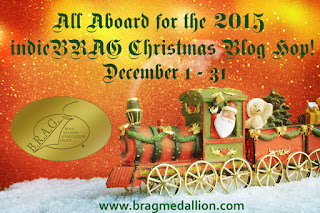Choosing Your Next Book
Whether you open a website or walk into a bookstore, there's nothing like the feeling of choosing what you're going to read next. Sadly, I've been disappointed more often than thrilled this year, and at lunch with a friend the other day, she said the same. "Maybe we read too much," she told me. "We've heard it all and seen it all as far as stories go." While that might be true, I can still get pulled into a book if it's done well, as I have been with my current read, WE BEGIN AT THE END by Chris Whitaker. It's not an easy book, but when I find myself thinking, even worrying, about the characters when I'm not reading, I know it's because of good writing. Of course, reading is as individual as writing. I can't tell you the book will affect you the same way. I can only give you my reaction.
Choosing a new book is both easy and hard in our time. There are tons of books and tons of places to find them. Still, I've noticed that the traditional publishing world is very much centered on safe choices these days, and they often don't appeal to me. One safe choice is the trending topic. When a book is a success, you can expect a couple dozen similar ones will follow. The covers will be similar in mood and style. The titles will suggest the bombshell best-seller. I got sick of books with "GIRL" in the title some time back. And the time/setting/focus will be the same. Right now it's WWII stories. After some excellent ones (and there still are some out there), we have a host of pale copies, like the one I'm currently reading, which tells me how the protagonist feels as if describing what she had for breakfast and boils down to French people=good, Nazis=bad. Quelle surprise!
The other safe choice for traditional publishers is authors who already have
a name. While there are authors whose work I always buy, smart readers know some of them don't write their own stuff anymore. Look for the
"with ___" on the cover, which means in most cases that some unknown author wrote
it and the "big" author agreed to put his/her name on it, equaling a
nice paycheck for everyone. Then there's "franchising," a way of benefiting from an author's name when he's too old to write or even after he's died. It all comes down to money, but for discerning readers, that results in disappointment.
I also note with sadness that editing has suffered--not so much in grammatical things but with allowing big-name writers to do whatever they like. Length is stressed over concise storytelling, and I sometimes find myself paging through to find the plot. I skipped about twenty pages of a legal thriller the other night, and when I jumped back in, the SAME WITNESS was still testifying. Big authors are allowed more leeway to stretch credulity as well. In a book by a well-known author, a fifty-year-old male murder victim was mistaken for a young woman because the killer covered the corpse with flowers. ("Oh, right, guv, we can't move all those flowers. We'll assume it's a young girl because she's done up like Ophelia in Hamlet.")
On the other side of traditional is independent publishing. (In case you're wondering, I started out with a traditional publisher and am now independent.) The problem here is uncertainty as to the quality of the work. Anyone--and I mean anyone--can publish on a dozen sites without investing a single penny, and that means there's a lot of bad work out there. Conscientious writers (like me!) hire editors and test their books with beta readers many times in the process, so they are fairly confident they've got a story worth reading. For a reader, however, it's hard to tell the difference when book shopping.
The other problem with independent authors' work is finding it. Type in a keyword like "mystery" and you'll get a list of the big names. But what if you've already read everything your favorites have written? There's no way to find an independent author with a similar style. We depend on social media to publicize our work, and the results are spotty at best. Often people say things like, "I really liked KIDNAP(.)org. Have you written any more books like that?" or "I read all your historical mysteries. Do you ever publish anything else?"
"Um, yeah."
So how can you find authors new to you who write good stories? It's not impossible.
Read the recommendations of bloggers/influences who like the kinds of books you like. Here's one: https://radio-joyonpaper.com/?s=Peg+Herring
NOTE: The cover was different back then. Here's what it looks like now:
Check out the samples on Amazon or other bookselling sites or read a few pages in your local bookstore (They don't mind). I can usually tell with that much if it's my kind of book or not.
Talk to people, online or in person, to find out what they like. I met a woman in a bookstore the other day who recommended a book to me (WWII era) and I bought it. I also often take booksellers' recommendations. They read a LOT of books, so they know if a particular story rises above the ordinary. I have found that young booksellers aren't as helpful as those closer to my age, though. Kids think J.K. Rowling was the first writer to ever explore the idea of a kid learning he wasn't just an ordinary guy--sheesh!



Comments
Post a Comment